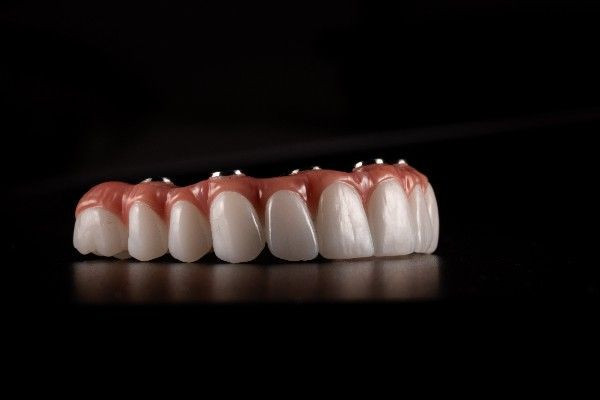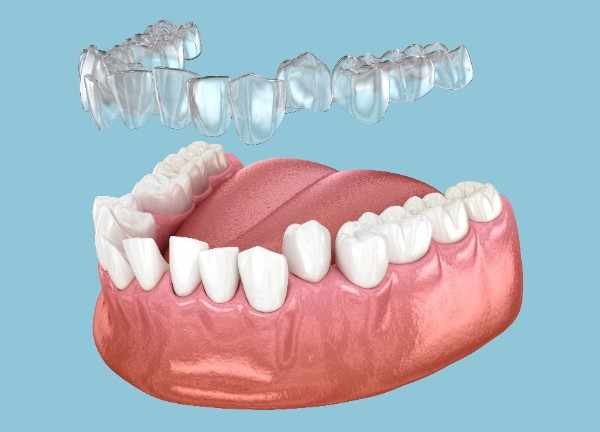views
Oral health is vital to our overall well-being, yet for many disabled individuals, accessing routine dental care can be a major hurdle. From physical mobility limitations to sensory sensitivities, the barriers to a smooth dental experience are real and often overlooked. A compassionate, tailored approach to dentistry ensures that everyone can access the care they deserve, without discomfort or fear. Inclusive dental support not only promotes healthier smiles but also builds confidence and independence for patients with disabilities.
Understanding the Barriers
Physical Accessibility
Dental practices can pose challenges for individuals with mobility difficulties, particularly if the premises lack step-free access, accessible toilets, or wheelchair-friendly treatment areas. Dental teams must consider space for mobility aids and offer adjustable chairs or facilities that accommodate transfers comfortably.
Communication Challenges
Patients with cognitive or sensory impairments may find it difficult to communicate pain, understand procedures, or feel safe in unfamiliar settings. Clear, slow speech, visual aids, and patient-friendly explanations help bridge this gap.
Anxiety and Sensory Sensitivities
Bright lights, loud equipment, and unfamiliar sensations can overwhelm some patients. Creating a calm, quiet, and predictable environment can make all the difference.
Tailoring Treatment Plans
Flexible Appointments and Extra Time
In many cases, longer appointments or multiple shorter visits can help ease patients into treatment. Planning ensures comfort and allows the dental team to deliver care at a suitable pace.
Working with Carers and Families
Involving a parent, guardian, or support worker during consultations can provide reassurance and ensure important medical or behavioural information is shared accurately.
Use of Technology
Some practices offer online forms, pre-appointment videos, or even virtual tours to familiarise patients with the environment before they arrive.
Dental Services with Inclusive Considerations
Preventative Care
Prevention is especially important for patients who may struggle with daily oral hygiene routines. Professional cleanings, fluoride varnishes, and regular check-ups play a vital role.
Restorative Treatments
Where treatments such as fillings or extractions are needed, practices can adapt their approaches to meet each patient’s tolerance levels. In some cases, sedation or referral to a specialist unit may be appropriate.
Cosmetic Dentistry for All
Many patients with disabilities are also candidates for cosmetic procedures, including dental implants Corby offers. Treatments such as dental implants can restore not just function but self-esteem for those affected by missing teeth.
Comfortable Orthodontic Options
Invisalign for a Gentler Approach
Invisalign Corby treatments provide a discreet and gentle alternative to traditional braces, which can sometimes cause discomfort for patients with heightened sensitivities. These aligners are removable, making hygiene easier and appointments more manageable.
Minimal Disruption to Routine
Because invisalign Corby aligners require fewer adjustments and shorter visits, they are well-suited to patients who might find frequent dental trips challenging.
Confidence Through Comfort
Straightening teeth can boost confidence, particularly for teens or young adults living with disabilities. With invisalign Corby the process is less intrusive, offering a practical option for those needing tailored orthodontic care.
Creating a Welcoming Environment
Training and Awareness
All dental staff, from receptionists to clinicians, should receive training on working with patients who have disabilities. Empathy, patience, and preparedness go a long way in delivering excellent care.
Quiet Rooms and Calm Zones
Some practices designate quiet areas where patients can wait in a low-stimulation setting. This can be especially useful for those with autism or anxiety disorders.
Visual and Sensory Aids
From picture-based appointment schedules to noise-cancelling headphones, small adaptations help reduce stress and support clearer communication.
Supporting At-Home Oral Care
Easy-to-Use Products
Toothbrushes with larger grips, electric models with timers, and toothpaste suited for sensitive mouths can help patients maintain oral hygiene more easily at home.
Routine Building
Carers and family members can support consistent brushing routines by using charts, visual cues, and setting daily reminders. Small rewards or praise can also reinforce positive habits.
Professional Advice
Dentists can guide families on specific oral care techniques and recommend suitable products, especially when physical or sensory challenges exist.
Community Collaboration
Working with Local Organisations
Forming connections with local disability support services, schools for special educational needs (SEN), and residential care facilities helps dental teams reach individuals who might otherwise struggle to access oral care. These partnerships make it easier to schedule routine check-ups in places that feel familiar and safe for patients. For example, coordinating visits during existing health service days at a care home can reduce disruption and build trust. Additionally, collaborating with support staff ensures that dental messages are reinforced consistently outside the clinic setting.
By establishing these relationships, dental teams can also better understand each patient’s unique circumstances. This insight makes it easier to plan tailored treatment paths that accommodate any cognitive, behavioural, or physical needs. In the long run, these joint efforts help shift the perception of dentistry from being a source of stress to a regular, approachable part of overall healthcare.
Outreach Services
Outreach dentistry plays a vital role for individuals who are housebound or face serious difficulties travelling to a clinic. Mobile dental units, staffed by qualified professionals, can visit homes or care centres equipped with all the essentials needed for check-ups, cleanings, and minor treatments. This flexibility not only avoids missed appointments but ensures that ongoing conditions like gum disease or cavities don’t go untreated.
For patients who require more extensive care but cannot travel easily, some dental practices offer domiciliary visits. These visits involve setting up care in the patient’s living space, which can ease anxiety and physical discomfort. Whether through temporary pop-up clinics or regular community-based rotations, outreach services are key to removing travel and access as barriers to essential oral health.
Disclaimer: Not all treatments may be possible during outreach visits. For complex procedures, referrals to specialist facilities may still be required.
Encouraging Regular Attendance
Familiarity builds comfort. By encouraging patients to attend regular appointments—even if it's just a short interaction or visual check-up—dental professionals can slowly develop trust and reduce anxiety over time. The key is consistency. When visits become part of a routine, patients begin to recognise the environment, the people, and the process, which leads to reduced stress and improved cooperation.
This consistency is especially valuable for children with developmental disabilities or adults with cognitive impairments, who often thrive on predictable schedules. For some, attending without receiving treatment initially (simply sitting in the chair, meeting the team, or hearing the sounds) can be a helpful way to desensitise them to the environment.
Practices may also consider offering flexible scheduling or booking patients at quieter times of day to ensure visits remain calm and unhurried. These steps not only improve oral health outcomes but foster long-term relationships between dental teams and the community.
Conclusion
Providing inclusive dental care is about more than just meeting clinical needs—it’s about respect, dignity, and empowerment. By addressing barriers and offering flexible, compassionate solutions, dental professionals help ensure that everyone has a chance to achieve a healthy smile. At Smilo Dental Implants Group, we are committed to creating safe, welcoming spaces where patients of all abilities feel seen, heard, and supported.




Comments
0 comment